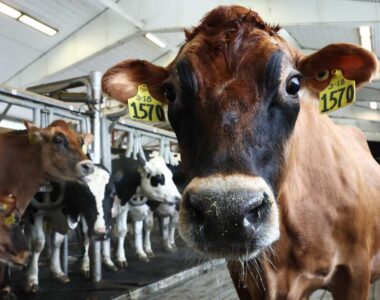
Soil health is the foundation of a productive and sustainable farm. Healthy soil supports plant growth, retains water, and contributes to biodiversity while reducing the need for chemical inputs. For many farmers, maintaining and improving soil health is a top priority, but it also raises important questions about best practices and solutions.
In this blog, we’ll answer the top questions about soil health that farmers commonly ask and explain how Farm Trader can help farmers connect with their local community and find the products they need to support healthy soil.
1. What Is Soil Health?
Soil health refers to the soil’s ability to function as a living ecosystem that supports plants, animals, and humans. Healthy soil is nutrient-rich, well-structured, and full of beneficial organisms like microbes and earthworms.
2. Why Is Soil Health Important for Farming?
Healthy soil improves crop yields, reduces erosion, retains water, and supports sustainable farming practices. It also reduces dependency on chemical fertilizers and pesticides, saving costs in the long run.
3. How Can I Test My Soil’s Health?
Soil testing is essential to understanding its composition and health. Farmers can collect soil samples and send them to a lab for analysis, which will provide information about pH levels, nutrient content, and organic matter.
4. What Are the Best Practices for Improving Soil Health?
- Crop Rotation: Planting different crops in a sequence to reduce pest buildup and improve soil structure.
- Cover Crops: Using crops like clover or rye to protect and enrich the soil during off-seasons.
- Composting: Adding organic matter to improve soil nutrients.
- Reduced Tillage: Minimizing soil disturbance to preserve its structure and biodiversity.
How Farm Trader Helps:
Farm Trader allows farmers to find or list products like compost, cover crop seeds, and organic soil amendments to support these practices.
5. What Role Do Microbes Play in Soil Health?
Microbes decompose organic matter, fix nitrogen, and improve soil structure. They play a crucial role in nutrient cycling and supporting plant growth.
6. How Can I Prevent Soil Erosion?
To prevent soil erosion:
- Use contour farming or terracing on sloped land.
- Plant cover crops to protect the soil surface.
- Install buffer strips with grasses or shrubs to reduce runoff.
7. What Are the Signs of Poor Soil Health?
- Compacted soil that is difficult to till.
- Water runoff instead of absorption.
- Low crop yields despite adequate inputs.
- Poor plant health, such as stunted growth or discoloration.
8. What Are the Benefits of Organic Soil Amendments?
Organic amendments, such as compost or manure, improve soil structure, increase nutrient content, and boost microbial activity. They also reduce the need for synthetic fertilizers.
How Farm Trader Helps:
Farm Trader provides a platform to find local suppliers offering organic soil amendments or allows you to list your own surplus materials.
9. How Do Changes in Climate Impact Soil Health?
Changes in climate can impact soil health by increasing erosion, altering microbial activity, and affecting water availability. Building resilient soil through practices like adding organic matter and reducing tillage can help mitigate these challenges.
10. How Can I Connect With Other Farmers to Share Soil Health Tips?
Learning from others is invaluable. Joining farming communities and attending workshops or forums can provide insights into best practices for maintaining soil health.
How Farm Trader Helps:
Farm Trader fosters connections among farmers, creating a community where you can exchange knowledge, share resources, and collaborate on solutions.
How Farm Trader Supports Soil Health Initiatives
Farm Trader is a one-stop platform for farmers looking to enhance soil health and sustainability. Here’s how it helps:
- Access to Products: Easily find/list and purchase soil health products like compost, cover crop seeds, and soil testing kits.
- Local Connections: Connect with nearby farmers for tips, advice, or trading resources.
- Community Engagement: Join a supportive farming community where you can share insights and learn from others.
- Streamlined Sales: List your own farm products, such as organic amendments, to reach buyers and contribute to soil health solutions.
Conclusion
Understanding and addressing the top questions about soil health is essential for farmers looking to maximize productivity and sustainability. From testing soil composition to implementing best practices like crop rotation and composting, there are countless ways to improve the health of your soil.
Farm Trader is here to make the process easier by connecting you with the products, resources, and community you need to succeed. Whether you’re searching for soil amendments or looking to share knowledge, Farm Trader is your trusted partner in supporting soil health.
Visit thefarmtrader.com today to start exploring tools and products for better soil health!
Related: Improving Soil Health with Sustainable Farming Practices



